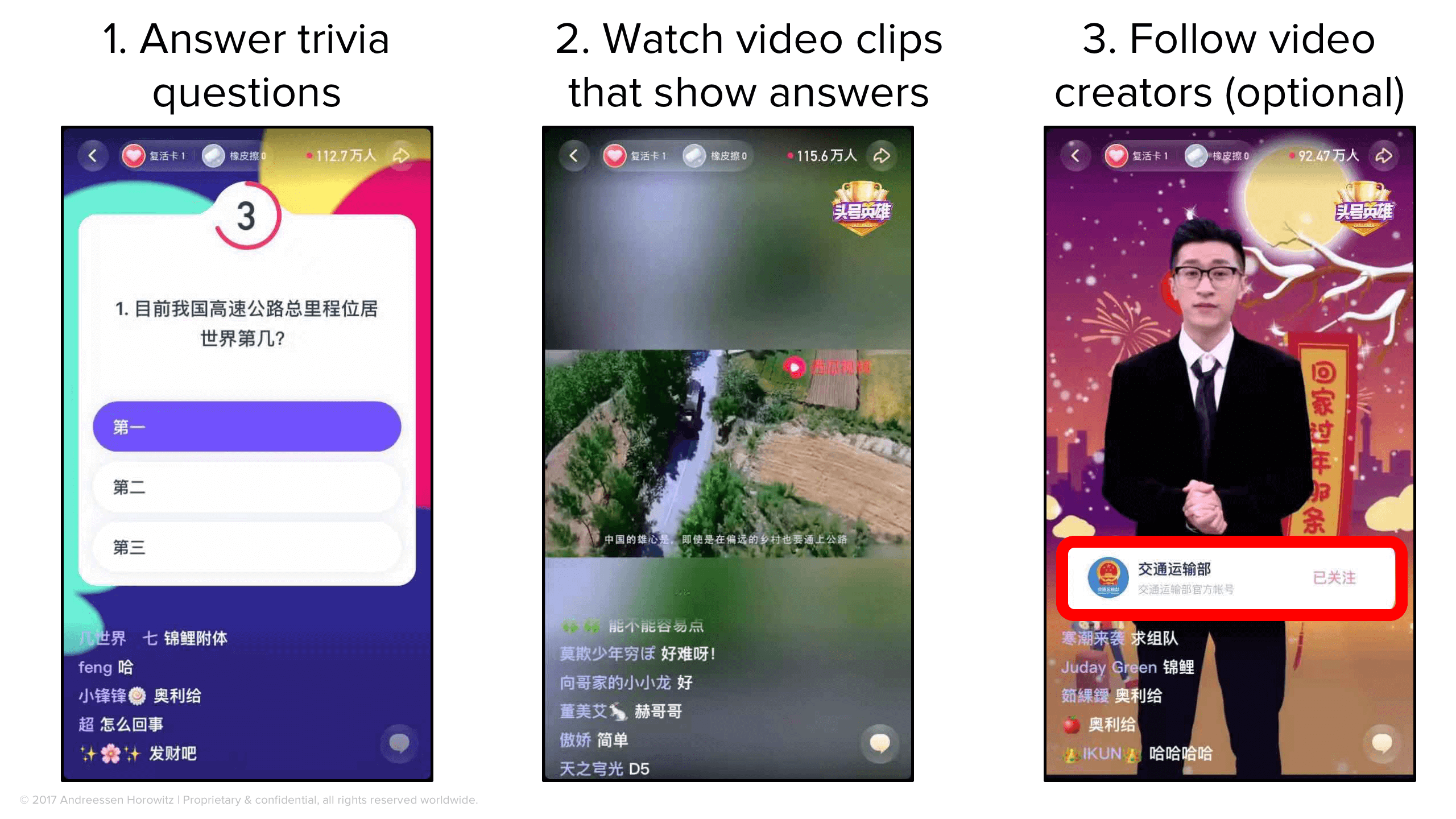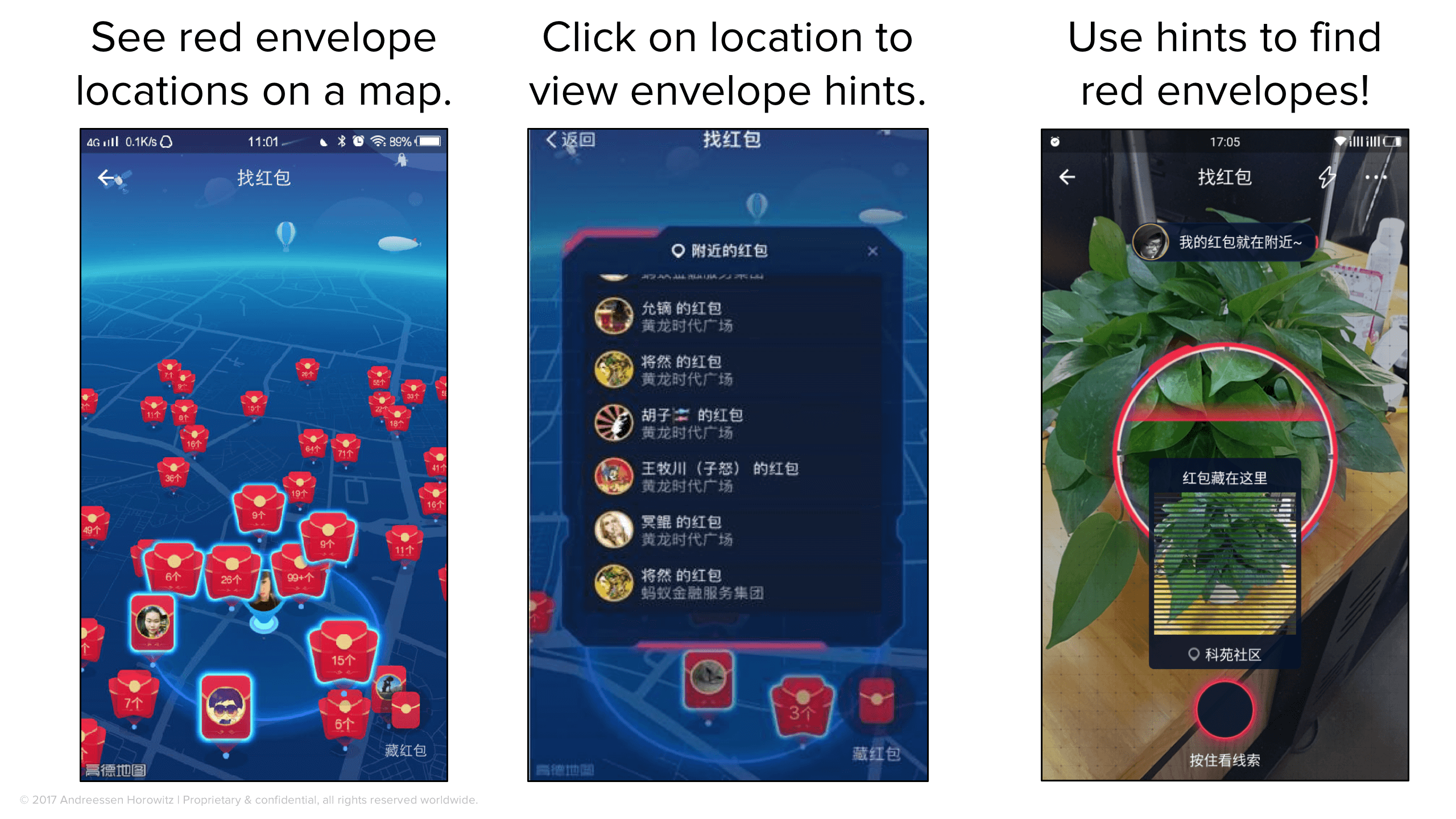Chinese New Year, the biggest holiday in Chinese culture, is traditionally celebrated with family gatherings, fireworks, a national TV show with over a billion viewers, and gifted red envelopes (stuffed with money). For large tech platforms, the tradition of gifting red envelopes represents additional significance: the opportunity to unlock payment credentials.
While WeChat launched WeChat Pay in 2013, the catalyst for its eventual transition into a super app was Chinese New Year—namely, by harnessing the ability to gift digital red envelopes to friends. To give digital envelopes and withdraw that cash from the bank, users need to enter their bank credentials. In 2014, WeChat users sent 40 million red envelopes during Chinese New Year; by 2015, that number reached over 1 billion.
In the last few years, global brands, from Apple and Coke to Nike, have all invested in Chinese New Year-specific marketing. Building campaigns around the festive season is not new. (While the top limited-edition products this year are from brands like Gucci, Burberry, and Disney, back in 1997, Häagen-Dazs took the Chinese market by storm with its ice cream-based spin on mooncakes.) But as WeChat demonstrated, the potential extends far beyond physical goods. In this post, we explore how major Chinese consumer apps are using AR, games, memes, and cash giveaways to celebrate the new year—and how US companies might follow suit.
Daily game drops
For this year’s Chinese New Year event, Douyin (domestic Chinese TikTok) launched a series of AR games that generate shareable videos. These games are released daily and presented on a virtual map, akin to a digital amusement park. These AR-based games are fairly short—generally lasting less than a minute—and conclude with a player score. They’re inherently great vehicles for increasing engagement. But, more importantly, such games reveal Douyin’s true superpower: lowering the barrier for content creation through memes.
Because these games are easy to play and learn, any user can produce something fun and shareable. If the gameplay itself isn’t incentive enough, each game also earns users points that can be redeemed for digital cash red envelopes and sponsored coupons. If the video is posted publicly, the first few viewers win red envelopes, as well.
This is Douyin’s digital map of 16 daily drop games:
In total, Douyin has pledged to give away $290 million USD in sponsored prizes for the Chinese New Year celebration this year; of that, $72M will be awarded for playing games and watching game posts of other users. The amount in each red envelope is random, and several users have gone viral by sharing wins of $1,500. Here’s a sampling of the games from this year (note that some are multiplayer):
Giveaways and red envelopes galore
Giving red envelopes with money tucked inside to family, friends, and coworkers is a big part of Chinese New Year tradition. But, increasingly, people are shunning traditional stationery to send digital red envelopes to each other using WeChat and Alipay. It’s become a running joke that on Chinese New Year Eve, although people are physically gathered together, everyone is glued to their phones, racing to claim red envelopes.
This year, Douyin introduced its own version of red envelope giveaways. In addition to enabling livestreamers to give away red envelopes, Douyin itself is also hosting daily HQ-style trivia games in which users can win cash. In the trivia game, users watch short video clips to see the answer. Afterwards, they’re presented with a link to the sponsor’s Douyin account. It’s as if you can follow a brand with one tap after seeing a commercial.
For Chinese New Year in 2017 and 2018, Alipay hosted an AR scavenger hunt. Those who wanted to track down a virtual red envelope would get a clue, along with its approximate GPS location, and could message the person who hid the treasure and ask for additional hints. After locating the envelope, the player could use the app to scan the spot and instantly get the money deposited into their Alipay account. In 2018, over 250 million people participated in Alipay’s New Year events.
Tencent’s short video app, WeSee, also ran a celebrity video campaign this year. WeSee has enrolled a slate of celebrities to post video red envelope drops at 7PM daily. This is just one portion of WeSee’s annual giveaway, which will include nearly $150 million in prizes this year.
Sponsorships and mobile tie-ins
The annual spring festival gala show that rings in the new year boasted over 1.1 billion viewers in 2019. But more important than sheer viewership numbers is the integration of pop culture and mobile. In 2015, Tencent started the tradition of having users shake their phones at specific moments during the Spring Festival Gala to collect 500 million sponsored digital red envelopes with random amounts of cash inside. Tencent paid just $8 million to sponsor the gala, but garnered more than 200 million users’ binding payment credentials.
Since 2015, tech companies such as Alibaba and Baidu have been the main gala sponsors (and now advertisers), giving gala viewers hundreds of millions of dollars. It’s seen as a big opportunity to acquire users: last year, Baidu gave away $134 million in digital red envelopes. When prompted on the gala show, users would open their apps and claim their prizes. This year, Bytedance rival Kwai will give away $146 million in digital red envelopes, while the official ecommerce partner, Alibaba’s Taobao, will give away $146 million in promotions during the event—all via mobile. One such example: Taobao plans to purchase the items saved in the shopping carts of 50,000 random users.
The opportunity behind the festivities
The holidays are prime for tech companies to release new features and attract attention, whether that’s rapidly acquiring users for a major product like WeChat’s wallet or creating viral in-app events, such as Douyin’s daily game drops. Significant engineering and business development efforts are required to pull off these limited-time events, but, as evidenced by WeChat Pay, these viral moments can change an app’s trajectory.
From a resource and product-planning standpoint, these holiday events represent a bigger philosophy among the China tech scene: sometimes it’s important to throw things at the wall and see what sticks. What better time to launch features than during the biggest holiday of the year, when users are most open to trying new things?
Some of Douyin’s Chinese New Year games are hits, others are busts, but the platform wins regardless: not only does it learn which games are most engaging, it also hooks users on the experience of starring in their own video creations.
Apps are living experiments that must innovate or risk losing user mindshare. Holidays might just be the perfect catalyst for testing new ideas.
Happy Chinese New Year! 新年快乐!武汉加油!





